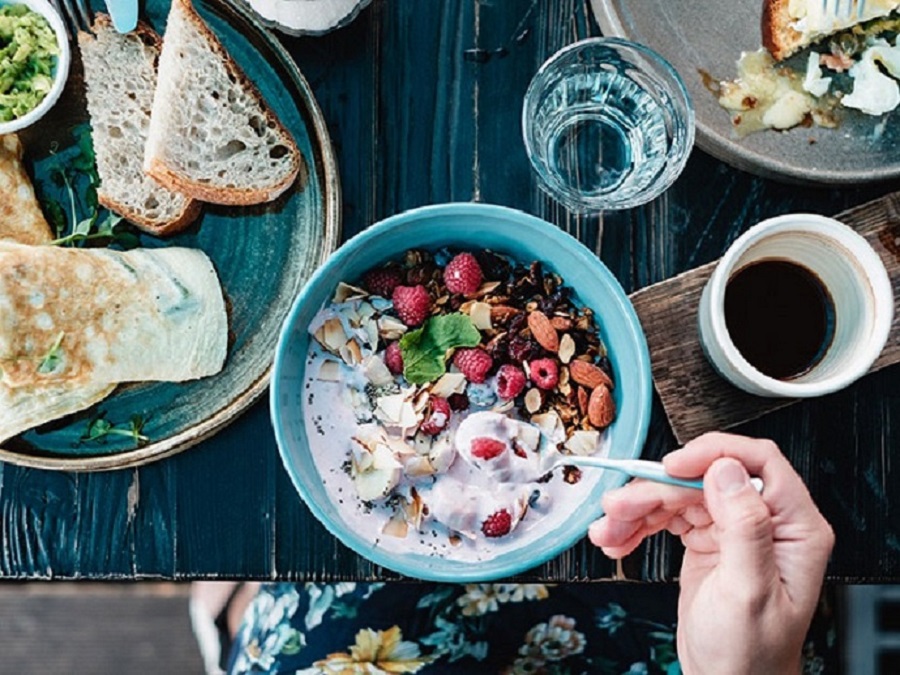5 Foods That Can Help You Improve Fertility

Many women spend their 20s trying not to get pregnant and their 30s desperately trying to get pregnant. IIn fact, 40% of pregnancies are unplanned, but if you're in the 60% trying to conceive, you want to ensure that your pregnancy will be healthy, delivery is easy, and a baby is healthy. But did you know that 15% of couples in the United States have trouble conceiving?
Unfortunately, there are so many women who don't realize they have health issues until they are trying to conceive and having trouble doing so. There are lots of factors that can lead to fertility problems including uterine fibroids, age, smoking, extra weight, etc.
Luckily, doctors have found ways to improve fertility, and one of them is diet. The goal is to eat natural, clean, whole, chemical- and dye-free organic foods as much as possible. The Standard American Diet (SAD) can actually negatively affect fertility. People eating high trans-fat diets, processed meats, sugary drinks, and high-glycemic-index foods can be devoid of essential nutrients, minerals, and vitamins. This makes it harder to conceive naturally.
The key is to get adequate protein, fats, and healthy carbs while limiting excessive sugars and processed foods. Here's where to start:
1. Eat plenty of vegetables
If you’re a vegan, you might be deficient in fat as well as B12, iron, vitamin D, and cholesterol. This can inhibit hormone production when trying to conceive. And if you have a lower body weight this can hinder you to get pregnant. It's crucial to get essential vitamins and minerals from vegetables at every meal.
Try eating seven to nine servings of vegetables each day with a variety of colors, phytonutrients, and antioxidants. It's essential to get your nutrition first through foods before supplementing.
2. Lean on foods containing beneficial bacteria
A healthy gut microbiome and vagina are vital for fertility. Studies have shown that having a healthy amount of lactobacillus increase the chances to get pregnant. Having a healthy microbiome is essential since it decreases the incidence of vaginal infections, keeps the immune system healthy and strong, and prevents overall inflammation.
Try eating more foods rich in beneficial bacteria such as miso, sauerkraut, kimchi, coconut kefir, and full-fat or Greek yogurt. Kombucha is another great source of probiotics.
3. Choose the right types of fat
Excessive fat can negatively affect fertility in both men and women, by limiting sperm count in men and increasing hormonal issues in women but a recent study has shown that women who consumed full-fat dairy were more fertile than those consuming nonfat or low-fat dairy. Dairy isn't for everyone, but those who tolerate it well should focus on full-fat, organic, grass-fed dairy.
4. Increase your consumption of natural, plant-based fiber
Consuming more fiber and limiting high-glycemic-index foods are both essential parts of fertility. Fiber-rich foods will help you maintain healthy blood glucose levels and prevent weight gain, by preventing insulin spikes and hormonal imbalances like PCOS due to high testosterone levels.
Fiber also helps improve GI detoxification and acts as a prebiotic, which is important for females who are estrogen dominant and need to get rid of excessive xenoestrogens linked to problems like endometriosis and fibroids
5. Get more protein
Consuming healthy, plant-based protein and limiting processed meats is crucial for a healthy fertility diet. Eat more foods such as beans, nuts, and legumes daily, as well as fish and eggs. These foods have no negative impact on fertility, as opposed to red meat, chicken, and turkey, which should be limited. If you do eat animal protein, ensure that it's organic, free-range chicken, or grass-fed beef whenever possible.
